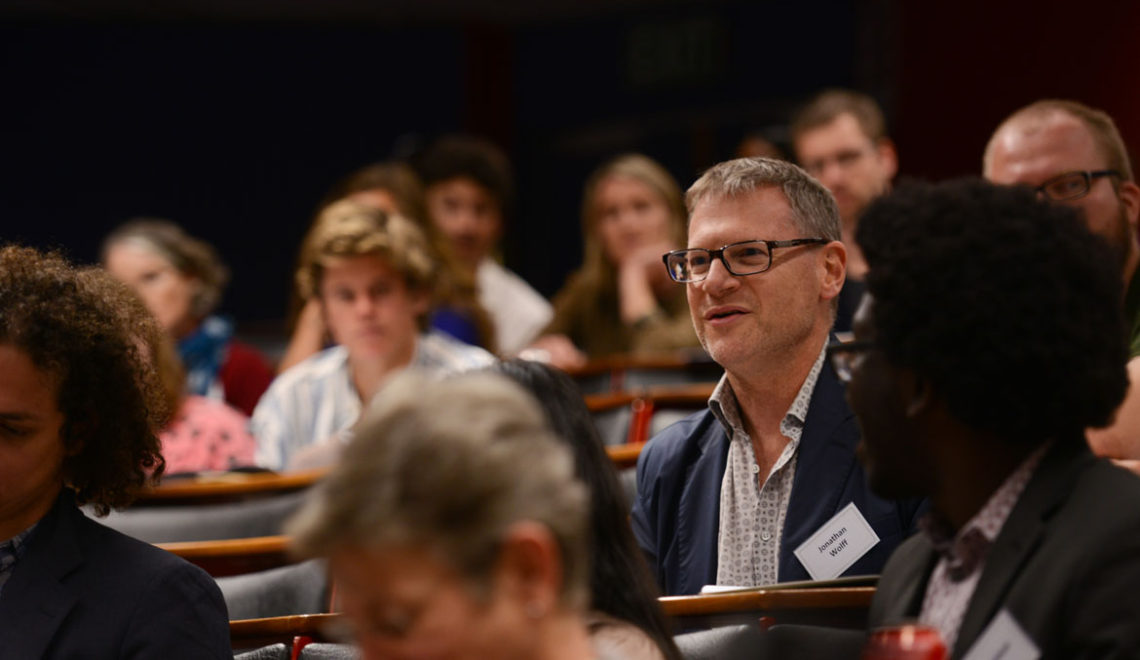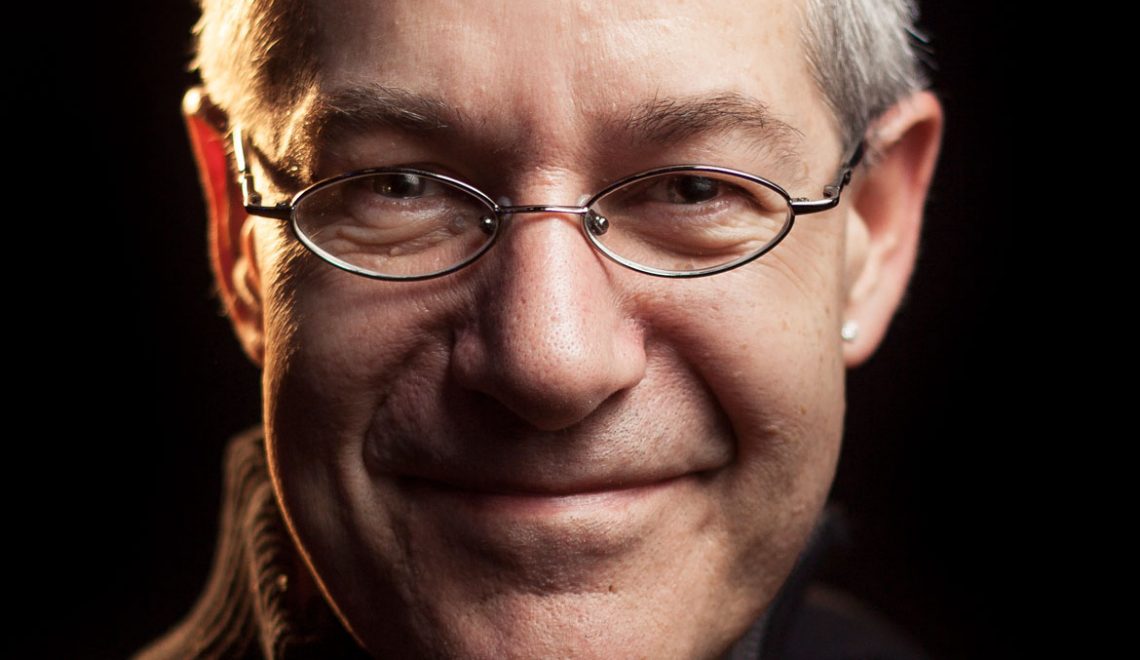
Jonathan Wolff is Blavatnik professor of public policy at the Blavatnik School of Government, University of Oxford. In addition to that, he has been a member of the Nuffield Council of Bioethics, the Academy of Medical Science working party on Drug Futures, the Gambling Review Body and the Homicide Review Group. Furthermore, he writes a monthly column on higher education for the Guardian newspaper. In this interview, we have touched on a wide range of subjects from his love of bridge to his favourite books, spoiler alert – one of them is On Liberty by John Stuart Mill. It has been a pleasure to interview Jonathan and we hope you enjoy reading it.
Introduction
Q: What is your dinner party monologue for when someone says “and what do you do?”
A: Depends who is asking. But in the general case, I start by saying that “I teach political philosophy”, and see where it goes, while keeping my ear open for possible ways of diverting the discussion. It was much worse when I was a Dean, when a certain sort of person thought it was their duty to pass on to me every possible student complaint, real or imagined, for every course at every university.
Early Life
Q: Could you tell us about where you grew up; were you a rural or city dweller?
A: We moved around a bit when I was young. I was born in Surrey, moved a couple of times when I was young, and then went to primary school in Walderslade, which is a suburb of Chatham, Kent, in the Medway Towns. It was semi-rural in that there were woods at the end of the road at that time. My secondary education was in Bromley, another suburb, but this time a suburb of London. I moved to London proper at the age of 19, and have lived there more or less ever since.
Q: What subject(s) did you excel at in school, and which did you find most challenging?
A: When I was young I was good at maths, though less so at geometry, as my drawing was never neat enough. Really bad at art and languages. Later on, I did well at Economics but lost interest in most subjects. I played a lot of bridge and put my energies into studying how to improve my game.
Q: Can you recall any reoccurring comments from your school reports?
A: A day-dreamer who got away with doing the absolute minimum, or less.
Q: Did you ever have a eureka moment where you thought, “this is the subject I want to study”?
A: I can remember in my early teens worrying about whether, if someone genuinely thought what they were doing was morally right, we had any right to punish them if we thought it wrong. Later on, when studying Law, I got very interested in whether every right is correlated with a duty. I didn’t know that there was a subject that allowed you to study these questions, but eventually I came across philosophy, which seemed to be made for me.
Q: Can you remember the point at which you fell in love with your subject?
A: I remember arriving at university, and meeting people who read the same books, listened to the same music, and went to the same plays as me. I met famous scholars who seemed interested in what I had to say. I was given texts to study that sent my mind racing. It all just created a feeling that this was the world I wanted to live in.
Academic Education
Regarding your undergraduate studies:
Q: Which University did you study at, and was it your first choice?
A: UCL. I had applied to read Law (first choice Bristol and Durham) aged 18 but didn’t get a place, so decided that university was not for me. I applied again three years later, having moved to London, and wanting to stay there. I didn’t know much about London universities and applied to several. Luckily by chance, I met a Philosophy PhD student before I had to make my decision, and he insisted I had to go to UCL where he was studying. It became my first choice, although it wasn’t earlier in the process.
Q: What undergraduate degree did you study for at University, and in hindsight would you select the same subject again?
A: Single honours Philosophy. Absolutely the right thing for me at the time, though I would have liked to have been able to take courses in other areas
Q: Can you remember a University lecturer who really inspired you?
A: Many. All round Jerry Cohen was my biggest inspiration. Richard Sorabji was the best lecturer, Hide Ishiguro the best tutor, Bill Hart the most supportive, Hilary Putnam the widest and most generous intellect, Burton Dreben the most provocative, and Malcolm Budd the best role model.
Regarding your postgraduate studies:
Q: What motivated you to further pursue academia?
A: I had worked in an office for three years before going to university, and had no desire to go back to work. I just wanted to see how long I could keep being paid to do philosophy. Still going.
Q: What institution(s) did you study at in your pursuit of postgraduate education?
A: UCL for two years, Harvard for one.
Q: What was the title of your PhD thesis, and how would you explain your findings to a novice?
A: I didn’t take a PhD. I did the MPhil at UCL, and then enrolled at Harvard for the PhD, but before I started I was offered a job at UCL, and so only stayed at Harvard for one year. My MPhil thesis was called “Exploitation”. I wanted to work out the correct definition of exploitation and to explain why exploitation is wrong.
Q: If you had your time as a student again, what would you do, if anything, differently?
A: It all worked out pretty well. I worked hard, learnt a lot, got good results and a job at the end, but at the same time had a lot of fun too. There are things I would have liked to have had time to learn, but nothing I did learn now seems to me to have been a waste of time. Possibly I would have liked to have studied some non-Western philosophy, though at the time I don’t know what I would have made of it.
Research Focus
Q: Tell us about your current research focus?
A: I’m working at the moment on social inequality. My overriding concern is to try to work out what it would be to live in a society of equals. I no longer think it is possible to have a worthwhile positive definition of social equality, so my attention has turned to understanding forms of social inequality, such as hierarchy and exclusion; to understand the harms involved: and to try to work out how to overcome or mitigate these forms of inequality.
Q: What do you believe is your single most important piece of research?
A: The book I wrote with Avner de-Shalit, Disadvantage.
Q: Within your area of study, what breakthroughs are on the horizon?
A: I think the study of power and privilege in relation to race, gender, disability and other disadvantages are producing a much-needed challenge to a somewhat complacent mainstream. The breakthrough will be to get what is currently regarded as marginal on to the main curriculum and into the most prestigious journals.
Q: Let your imagination take over for a minute and tell us what you hope your successors will be researching in 2116?
A: In political philosophy, we are driven much more by fear than hope. I presume that forms of artificial life and its consequences for human life and well-being will increasingly be the main topic for those starting out now, though climate change as a topic doesn’t look like it is going away. Beyond about 30 or 40 years, I have no idea what human concerns will be.
Q: What do you feel your professional legacy will be?
A: It is rare for any philosopher for their work to survive a decade after their death. I have no illusions on this score. What I am most proud of, I think, is, through my writing for students, opening up the subject to some people who were scared of finding it difficult. And also in helping some younger philosophers take the risk of doing inter-disciplinary work.
Current Projects
Q: Are you working on any extra-curricular projects at the moment, such as: books, podcasts, websites, or speaking?
A: Just finishing writing An Introduction to Moral Philosophy, and editing an accompanying Readings in Moral Philosophy, for W.W. Norton in the USA.
Advice and Tips
Q: If you could give your 18-year-old self one piece of advice, what would it be?
A: You’re right, Law really isn’t the subject for you.
Make sure you are really interested in what you are doing, rather than liking the idea and hoping that you will get interested.
Q: What advice would you give someone looking to start, or progress his or her career in your field?
A: Make sure you are really interested in what you are doing, rather than liking the idea and hoping that you will get interested one day. And then follow your interests as hard as you can. But don’t forget to get on the conference and seminar circuit so you can impress people in person as well as on the page.
Q: Which book would you say has had the biggest impact on your life?
A: Probably The Western Intellectual Tradition by Jacob Bronowski and Bruce Mazlich. It was given to me by a friend who I worked with when I was 19 or so. She thought I was wasting my life and ought to go to university and that this might help wake me up. She was right. I had no sense of intellectual history and this was eye-opening. It was the basis of my further reading for several years. I don’t know what I would make of it now, but it helped me form my path.
Q: If you could recommend one book to a novice in your field, what would it be?
A: Difficult question. I’d like to recommend a primary source that is superbly written, raises questions that are alive today, and shows what philosophy can be. I think that John Stuart Mill’s On Liberty comes closest, even though some of its strength is rhetorical rather than philosophical.
Q: Why do you think being a freethinker is important?
A: Because the alternative – following authority – is unthinkable these days. However, not following authority should not be confused with having contempt for authority. There is such a thing as the wisdom of ages, but there is also the stupidity, prejudice and bigotry of the ages, and we need to sort these out for ourselves.
Conclusion
Q: And finally, we are back at the dinner party. Someone offers you a drink, what do you ask for?
A: Whatever’s open. Unless it’s Campari.
If you’d like to find out more about Professor Jonathan Wolff you can check out his academic profile, Twitter page, personal website and Wikipedia page.
Advertisement









